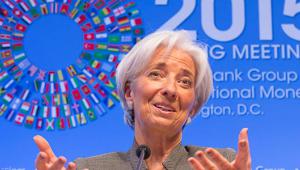Web_ElderlyWomanMyanmar_iStock_000017853743_Large.jpg

An elderly woman looks in the mirror in Myanmar
While the region is blazing ahead of the rest of the world in terms of the pace of economic growth, its continued success will depend on how well it can manage a rapidly ageing population and ensure the proceeds of growth are shared by all.
Speaking today at the Tokyo Fiscal Forum 2017, the IMF’s Mitsuhiro Furusawa said sustainable and inclusive growth in the region will only be possible if policymakers address the implications of coming demographic change.
Asia-Pacific is at the forefront of population ageing, and by 2050 one in four people in the region will be over 60. That’s equivalent to 1.3 billion people – a tripling of the current number – and will make Asia-Pacific the oldest region in the world. Meanwhile, its population growth will fall to zero.
“This puts many Asian countries at risk of growing old before coming rich,” noted Furusawa. “Under current policies, age-related public expenditures, pensions and health care in Asia are projected to increase by up to 10 percentage points of GDP by 2050, depending on the country.
“Such spending could lead to unsustainable public debt. That, in turn, could require sharp cuts in spending or large tax increases.”
Instead, he urged countries to adopt policies to counter rapid ageing, and to do so “before ageing sets in”.
He suggested policies ranging from the provision of more affordable childcare to increase the number of women in the work force to entitlement reforms to contain the growth of age-related spending.
Better tax systems could also offset some of the impact, he continued, for instance by shifting the tax base away from wages and towards consumption and assets.
Any policies should be introduced at a gradual pace to share the burden across generations and avoid reversals, he noted.
Fiscal policy is also a “powerful tool” in promoting inclusive growth itself, he continued. Again the tax system is key, as it can facilitate redistribution of resources through transfers and other progressive instruments.
Furusawa said expanding cash transfers, such as a highly successful programme in the Philippines that delivers money to poor households dependent on their compliance with education and health requirements, and the tax base for personal income tax could improve equity.
Equality of opportunity can also be delivered through fiscal policies, helping people to adapt to a changing economy through investment in human capital and protection against risk.
“In our fast-changing global economy – with rapid technological change and economic integration – there is a rising demand for public policies to cushion the effect on those who cannot keep up,” he explained.
These policies include job counselling and re-training, wage insurance for workers who are displaced by technology into lower-paying jobs, and wage subsidies for employers to encourage them to hire displaced workers.
He highlighted that such an approach in Australia had increased participation in the labour force and decreased the take up of unemployment benefits.













